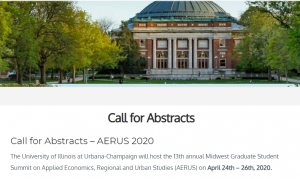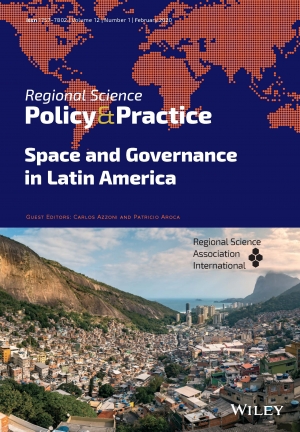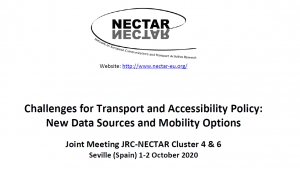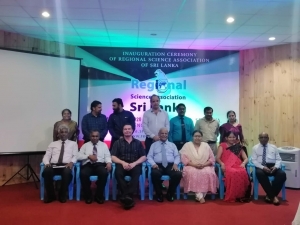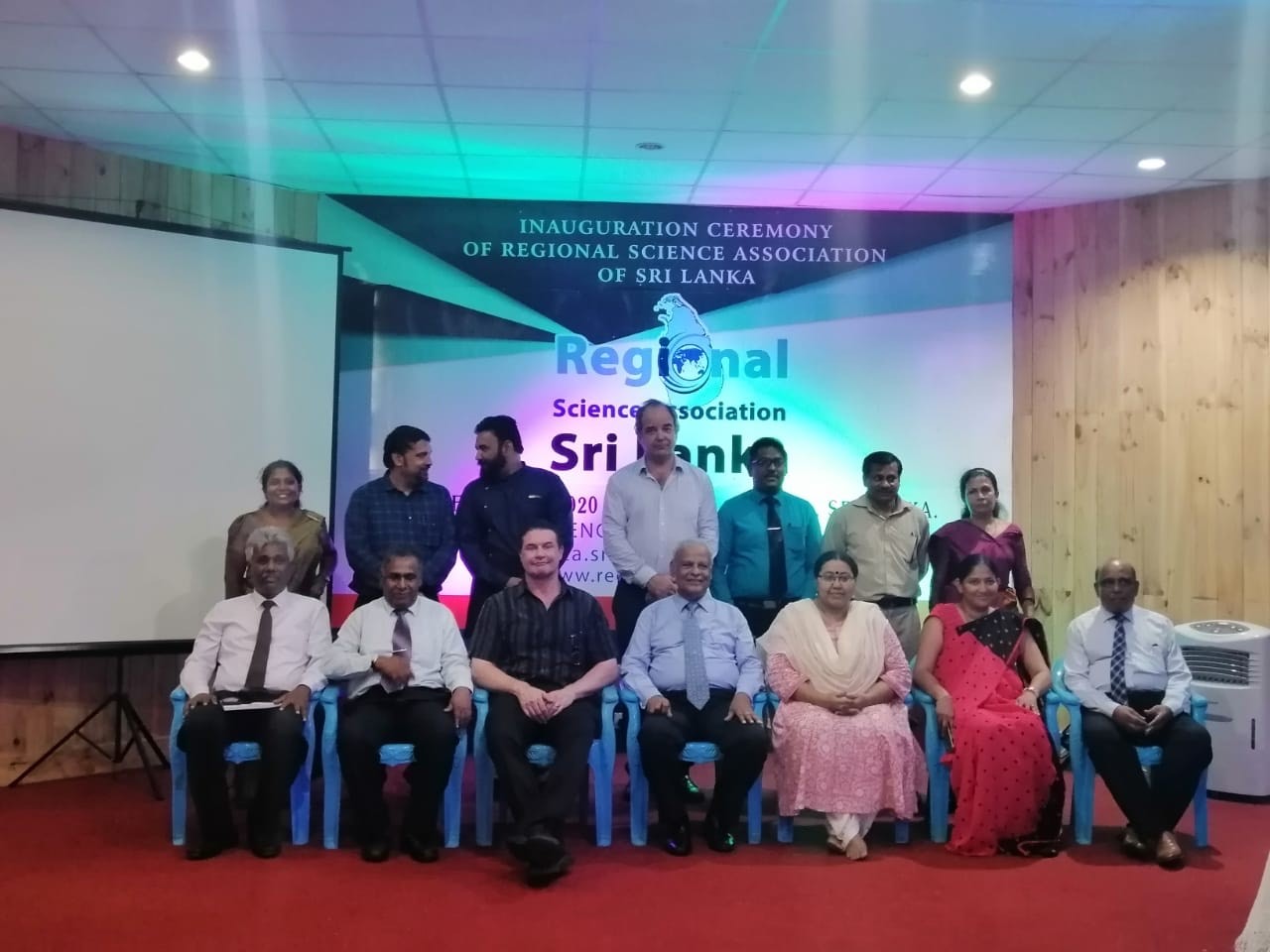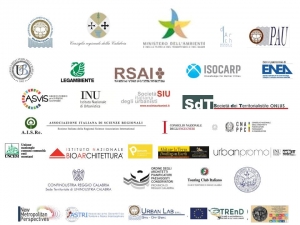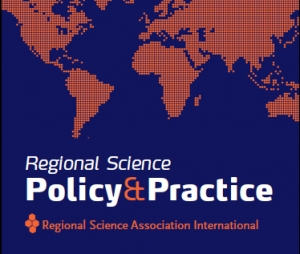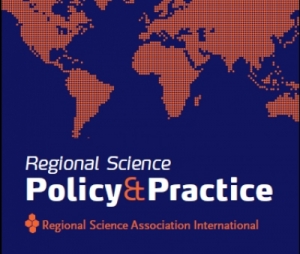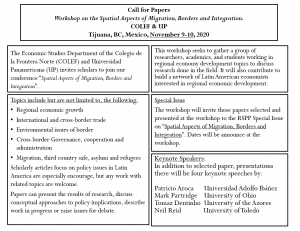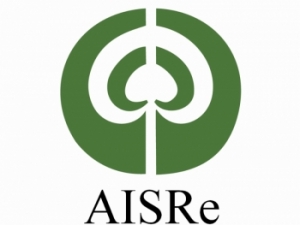Council
Elisabete Martins
Call for Abstracts - AERUS 2020
The University of Illinois at Urbana-Champaign will host the 13th annual Midwest Graduate Student Summit on Applied Economics, Regional and Urban Studies (AERUS) on April 24th – 26th, 2020.
In addition to giving participants the occasion to present their research and receive feedback, this year’s meeting will feature 2 workshops targeted to graduate students, 2 faculty panels on system dynamics and 2 keynote speakers on regional economic systems.
Workshops:
- Machine learning and big data. Prof. Zhenhua Chen (The Ohio State University).
- Job market season. What to expect? Prof. William Ridley (University of Illinois at Urbana-Champaign).
Keynote speakers:
- Christa Court, Assistant Professor and Director of the Economic Impact Analysis Program, Food and Resource Economics Department, University of Florida. Christa specializes in regional economic modeling, the energy-water nexus, applied spatial econometrics, environmental accounting, and connections in human and natural systems.
- Zhenhua Chen, Assistant Professor, City and Regional Planning Department, The Ohio State University. His research interests include economic impact assessments of infrastructure investment, disasters and resilience using machine learning, Computable General Equilibrium (CGE) models and big data analytics.
Faculty panel:
- Mark Brown, Statistics, Canada
- Sandy Dall’erba, Dept. of Agricultural and Consumer Economics
- Brian Deal, Dept. of Landscape Architecture
- Monica Haddad, Dept. of Community and Regional Planning (Iowa State University)
- Maria Chu Librada, Dept. of Agricultural and Biological Engineering
- Bo Li, Dept. of Statistics
- Nicolas Federico Martin, Dept. of Crop Sciences
- William Ridley, Dept. of Agricultural and Consumer Economics
- Yilan Xu, Dept. of Agricultural and Consumer Economics
The summit is designed to initiate intellectual dialogue on wide array of research areas and spur future research collaborations among participating young scholars. Work at any stage will be accepted, including completed research, research in progress, and research idea/proposal.
Conference presentations address a variety of areas of growing importance to regional scientists, economists, planners, and geographers. Participants are encouraged to submit a proposal on subjects related to the conference themes: Regional Science, Urban Economics, Labor Economics, Economic Geography, Environmental Economics, Resource Geography, Energy Economics, Health Economics, Housing and Real Estate, Development Economics, Spatial Econometric, Computable General Equilibrium, Agent-Based Modeling, Input-Output Analysis.
Participants have to send their abstracts (300 words max), by March 15th, 2020.
For register and submitting abstracts please visit http://aerus2020.web.illinois.edu/
Registration fee will be $60, includes 2 workshops, 2 breakfast, 2 coffee-breaks, 2 lunches and a dinner Saturday night.
Please direct your questions or concerns to This email address is being protected from spambots. You need JavaScript enabled to view it.
Looking forward seeing you here!
Local organizing committee
AERUS 2020
The latest issue of Regional Science Policy & Practice are available! Volume 12, Issue 1, Special Issue: Space and Governance in Latin America, Pages 1-225, February 2020
Special Issue on Latin American issues
Carlos Azzoni, Patricio Aroca
ORIGINAL ARTICLES
The territorial fiscal gap in Colombia
The decision on unconstitutionality of earmarking and its impact on the housing access: Evidence from São Paulo State, Brazil
Regional funding and regional inequalities in the Brazilian Northeast
Regional inequality and labour precariousness: An empirical regional analysis for Brazil, Mexico and Equador
Effects of a cash transfer programme on origin–destination migration flows
Related variety and employment growth: a spatial dynamic model for Brazilian microregions
Natural Disasters and Informality: Are local labor markets impacted after an earthquake?
A spatial estimation of the impacts of sanitation on education
A proposal to redesign the map of the regions of Brazil: Agglomerating neighbouring and socioeconomically homogeneous municipalities
Spatial distribution of logistics services in Brazil: A potential market analysis
NECTAR CL 6 @ Seville: Challenges for Transport and Accessibility Policy: New Data Sources and Mobility Options
Dear NECTAR colleagues,
NECTAR Cluster 6 (Accessibility) and Cluster 4 (Travel, Migration, Housing and Labour Markets), together with the Joint Research Centre (JRC) of the European Commission are organizing a joint workshop. The meeting will take place in Seville, Spain (1- 2 October 2020) and will be dealing with the topic of “Challenges for Transport and Accessibility Policy: New Data Sources and Mobility Options”.
More information in the attached call for papers
Best regards,
--
Ana Condeço-Melhorado
NECTAR Secretary
Inauguration Ceremony of Regional Science Association of Sri Lanka
Deadline March 31, 2020 for Registration International Workshop/Competition Rhegion UN 2020 - 2030
The deadline for registration for the International Workshop/Competition Rhegion UN 2020 - 2030 has been postponed to March 31, 2020.
I attach you can find the Call for the International Workshop/Competition.
RSPP Call for Paper | Special Issue on Regional development in Central-Eastern Europe
RSPP Call for Paper
Regional development in Central-Eastern Europe
Regional development of Central-Eastern Europe follows its trajectory, which results from natural, historical, political and social factors. World and European challenges are translated into local actions. Regional policy in Central-European Europe profits from already implemented solutions in other regions, as well as promotes its own policy innovations.
Goal of the special issue on “Regional development in Central-Eastern Europe” is to analyse regional development and policy in wider context. The contributions include, beyond others, policy efficiency, transformation of regions, infrastructure and mobility, living and well-being, aging and silver economy, smart cities, urban and rural development, challenges of environment and natural resources.
Interested scholars are encouraged to submit an article in the platform of Regional Science Policy and Practice until July 31, 2020. The papers will be on-line after accepted by a blind peer review process. The accepted paper will be compiled in a special issue in 2021.
Editors: Katarzyna Kopczewska This email address is being protected from spambots. You need JavaScript enabled to view it.
RSPP Call for Paper | Special Issue on Spatial Resilience and the Border Regions of Europe (NEW DEADLINE)
RSPP Call for Paper
Special Issue on Spatial Resilience and the Border Regions of Europe
One of the least exploited research directions in regional science is the investigation of spatial patterns in relation to resilience, as well as of the role that geographical positioning, respectively the interaction between space and socio-economic activities, play in fostering and enhancing resilience, especially in border regions.
Some key research questions arise as being particularly important for development policies: Are there spatial differences in the resilience outcomes, and have various regions different responses to economic shocks along with their ability to adapt to new economic circumstances, depending on the geographical positioning of a region? Are regions with external borders less resilient to economic, environmental, social or political shocks than regions without any national borders, or with borders that are internal to the EU? Is the impact of a shock on border regions different from the impact on domestic regions? Or does the impact differ on peripheral regions vs. central ones? Can cross-border cooperation reduce border effects and transform borders from a disadvantage into an opportunity? What role do physical, administrative, economic, cultural, institutional, or political barriers have on the resilience of border regions?
This special issue on Spatial Resilience and the Border Regions of Europe aims at responding to some of key challenges for border regions, collecting a set of studies on:
- The principles and effects of spatial resilience (be it cities, regions, rural areas, spatial labor markets, migration, transport systems, public facilities etc.);
- How to better connect and inter-connect the territorial dimension with the economic, social or the ecological issues of resilience in the borderline regions (both external and internal);
- The systemic vulnerability, territorial planning, growth patterns, urban development, quality of life and demographic aspects of cities in the border regions;
- The core-periphery structural differentiation or evolutionary paradigms connected with the resilience capacity;
- Border effects on resilience and the role of cross-border cooperation;
- New approaches on spatial dynamics, from the perspective of the equilibrating forces inherent in regional and urban systems.
Case studies on Romania, Bulgaria, Georgia, Armenia, Belarus, Azerbaijan, Ukraine, Poland, Hungary, Estonia, Leetonia, Latvia, Greece, Turkey, Russia and Finland, but also on the internal “borders” of EU will be more that welcomed.
Papers should be submitted to the regular review process of the journal (https://rsaiconnect.onlinelibrary.wiley.com/journal/17577802) until March 31, 2020.
The coordinators of the Special Issue:
Gabriela Carmen PASCARIU (This email address is being protected from spambots. You need JavaScript enabled to view it.)
Karima KOURTIT (This email address is being protected from spambots. You need JavaScript enabled to view it.)
Ramona TIGANASU (This email address is being protected from spambots. You need JavaScript enabled to view it.)
Call for Papers | Workshop on the Spatial Aspects of Migration, Borders and Integration, COLEF & UP, Tijuana, BC, Mexico, November 9-10, 2020
The Economic Studies Department of the Colegio de la Frontera Norte (COLEF) and Universidad Panamericana (UP) invites scholars to join our conference “Spatial Aspects of Migration, Borders and Integration”.
Topics include but are not limited to, the following:
- Regional economic growth
- International and cross-border trade
- Environmental issues of border
- Cross-border Governance, cooperation and administration
- Migration, third country safe, asylum and refugees
Scholarly articles focus on policy issues in Latin America are especially encourage, but any work with related topics are welcome.
Papers can present the results of research, discuss conceptual approaches to policy implications, describe work in progress or raise issues for debate.
This workshop seeks to gather a group of researchers, academics, and students working in regional economy development topics to discuss research done in the field. It will also contribute to build a network of Latin American economists interested in regional economic development.
Special Issue
The workshop will invite those papers selected and presented at the workshop to the RSPP Special Issue on “Spatial Aspects of Migration, Borders and Integration”.
Keynote Speakers:
In addition to selected paper, presentations there will be four keynote speeches by:
Patricio Aroca Universidad Adolfo Ibáñez
Mark Partridge The Ohio State University
Tomaz Dentinho University of Azores
Neil Reid University of Toledo
Costs:
There is no fee, but registration to the workshop is required by October 10, 2020.
Language:
All Workshop sessions will be held in English.
Submissions:
Prospective participants should submit a full version of the paper in English NLT September 11th, 2020 to: This email address is being protected from spambots. You need JavaScript enabled to view it. . Authors will be notified of the final decision by September 30, 2020.
Please feel free to make any inquiries about the event at the above email address or visit our website https://realmexico.com.mx/
1st AISRe Summer School 2020 | 6-10 July 2020, Milan (IT)
Call
1st AISRe Summer School 2020 | European territorial challenges and regional policy: theories and methods
Venue Milan (IT). Università degli Studi di Milano-Bicocca, Di.SEA.DE
Dates 6-10 July 2020
Objectives and themes
The Summer School will focus on the most relevant theoretical concepts and analytical models in order to understand the implications of the recent territorial challenges in Europe. The goal of the Summer School is to teach a research method for studying complex issues, both positive and normative, with advanced theoretical and methodological tools. Within this framework, the Summer School will address the following topics:
• Development and growth: a comparison between old and new indicators
• Global challenges (migration and global value chain)
• Changing territorial structure (urban regions and major cities)
• Regional policy: instruments, modelling and assessment
Structure of the Program
Each topic will be developed along one day through lessons, seminars on specific topics and tutorial sessions according to the following scheme:
9.30-12.30 a.m. lesson
14.00-16.00 p.m. lesson/seminar/tutorial session
16.30-18.30 Students’ presentation
Confirmed senior scholars with high reputation on the topics of the Summer School will deliver lectures, while experts will conduct seminars and tutorial sessions. All presentations will be in English.
Speakers:
• Development and growth: a comparison between old and new indicators (Paolo Veneri, OECD; Camilla Lenzi, Politecnico di Milano)
• Migrations and globalization: two challenges for territorial development (Alessandra Faggian, GSSI; Laura Resmini, Università di Milano Bicocca; Andrea Ascani, Utrecht University))
• Changing territorial structure (Ezio Micelli, IUAV, Venezia)
• Regional policy: instruments, modelling and assessment (Fabio Mazzola, Universita di Palermo; Andrea Conte, EC-JRC, Sevilla; Simona Comi, Università di Milano-Bicocca; Luca Bettarelli, Università di Milano-Bicocca)
Local Organizing Committee
Laura Resmini, Università di Milano-Bicocca (Co-ordinator)
Luca Bettarelli, Università di Milano-Bicocca
Simona Comi, Università di Milano-Bicocca
Scientific Committee
Roberta Capello (Politecnico di Milano); Cristina Bernini (Università di Bologna); Marusca De Castris (Università degli Studi Roma Tre); Alessandra Faggian (Gran Sasso Science Institute – GSSI); Patrizia Lattarulo (IRPET); Ilaria Mariotti (Politecnico di Milano); Rosanna Nisticò (Università della Calabria); Andrea Omizzolo (EURAC); Guido Pellegrini (Università di Roma La Sapienza); Giovanni Perucca (Politecnico di Milano); Davide Piacentino (Università di Palermo); Vincenzo Provenzano (Università di Palermo); Elena Ragazzi (IRCrES - CNR); Francesca Silvia Rota (IRES Piemonte); Domenico Scalera (Università del Sannio).
How to participate
PhD students and early career researchers with less than 3 years of postdoctoral experience, from Italian universities and research centres can apply to this call.
Candidates must send their CV (Europass format, maximum 5 pages) and an abstract of a research project/paper on which they are currently working (maximum 2,000 words). The selection committee will evaluate the applications on the basis of the documentation submitted. The CV and the quality of the abstract, as far as its consistency with the topics of regional and urban sciences, are the only criteria for the selection.
Candidates have to send their application to the following email address: This email address is being protected from spambots. You need JavaScript enabled to view it. by March 20th 2020. In the object of the email, please specify “NAME OF THE CANDIDATE – Application to the AISRe summer school”.
A maximum of 25 candidates will be selected for participation, and they will receive an email notification by 15th April 2020.
There are no registration fees. Travel, meals and accommodation are at the expense of the participant. Options for accommodation at affordable prices in the university campus will be discussed after the selection of the participants, based on the number of bed places available. Once selected, participants are requested to register as individual member of the Association. Information about membership fees can be found on the Association website (https://www.aisre.it/en/association/membership-and-fees). AISRe membership also includes:
- a subscription to Scienze Regionali (Italian Journal of Regional Science) for the following calendar year (https://www.mulino.it/riviste/issn/1720-3929);
- the volumes of the Regional Science Series (FrancoAngeli) published during the business year;
- the registration to the Regional Science Association International (RSAI), which includes an online subscription to the journals Papers in Regional Science and Regional Science Policy & Practice for the following calendar year;
- the opportunity to pay a reduced fee at the annual conferences of the international associations: European Regional Science Association (ERSA) (www.ersa.org) and Regional Science Association International (RSAI) (https://regionalscience.org/).
A certificate of attendance will be issued at the end of the school, for full participation only.
Fully funded PhD Opportunity at the Fraser of Allander Institute
This fully funded PhD project will use a combination of econometric and computable general equilibrium (CGE) modelling techniques to look at the impact of high-tech new businesses on employment in local and regional economies.
This project aims at capturing and measuring the impact of new businesses generation on local and regional economies in the UK. Attracting new, particularly high productivity, businesses is a policy priority of the UK government and underpins the UK Government’s Industrial Strategy. One reason for this is that when new businesses are started in local area, new jobs are created both in the same industry and in other industries, due to the increase in demand for local goods. This is known as the local employment multiplier effect.
The hope of government is that by attracting new, high productivity, firms to parts of the UK which lack these sorts of jobs, that this will create spillover employment effects throughout regional and local economies. However, these positive impacts may be offset by a series of general equilibrium forces that could result for example in an overall increase in the cost of living in the area.
This project will combine detailed microeconometric work and multi-sectoral multi-regional CGE modelling to produce a strong evidence base on the magnitude of UK local employment multipliers. The first part of this work will involve the use of firm—level and individual level microdata to better understand and model key inputs to the assessment of local employment multipliers. The second part of this work will develop and use a multiregional CGE model of the UK to capture induced and general equilibrium effects.
More information can be found here:
https://www.strath.ac.uk/studywithus/postgraduateresearchopportunities/businesspgropportunities/economicspgropportunities/canlocalareasgainnewjobswhennewhigh-techbusinessesareattracted/
The deadline to apply is: 30 April 2020
Supervisors: Gioele Figus, This email address is being protected from spambots. You need JavaScript enabled to view it. and Stuart Mcintyre, This email address is being protected from spambots. You need JavaScript enabled to view it.
About Us
The Regional Science Association International (RSAI), founded in 1954, is an international community of scholars interested in the regional impacts of national or global processes of economic and social change.

